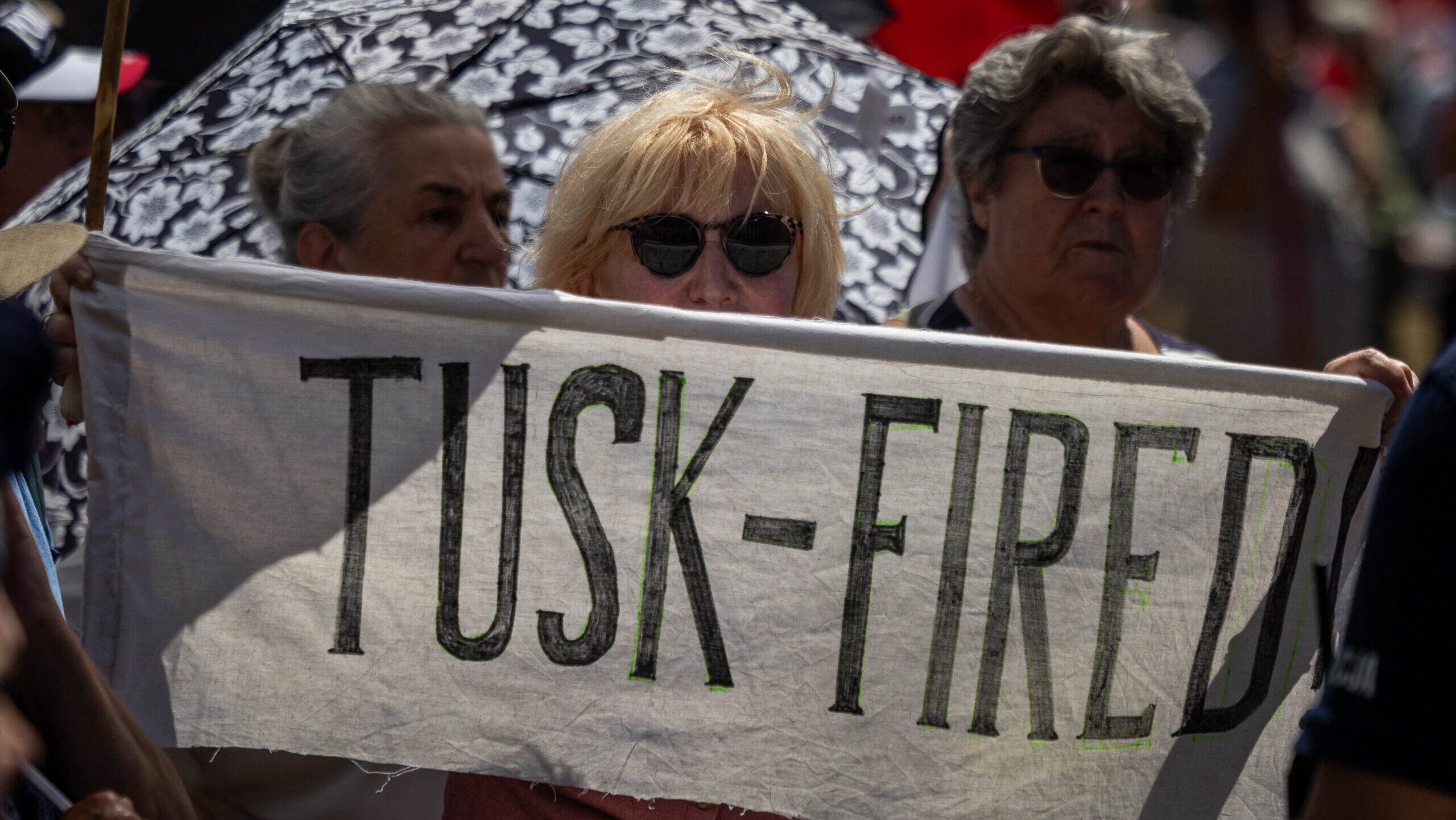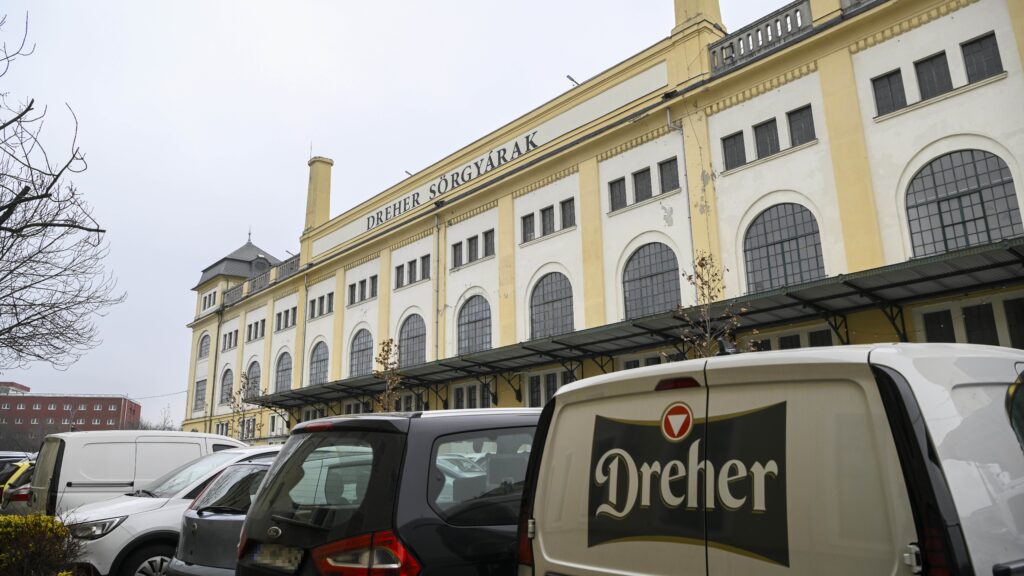PiS-backed Karol Nawrocki is set to be inaugurated on 6 August as Poland’s new president, effectively marking the end of Prime Minister Donald Tusk’s hopes of advancing the flagship elements of his programme. In a video message posted on X, Nawrocki pledged a ‘new chapter’ in the country’s history. His inauguration also brings to a close the ten-year presidency of Andrzej Duda.
The ceremony will begin at 10am on Wednesday in the Sejm building, where Marshal of the Sejm Szymon Hołownia will open a joint session of the National Assembly. Nawrocki will take the presidential oath before the Marshal and is expected to deliver a speech outlining his political vision and programme immediately afterwards.
Nawrocki secured a razor-thin victory in June, defeating Tusk-backed candidate Rafał Trzaskowski, the Mayor of Warsaw. The right-wing candidate received 50.9 per cent of the vote to Trzaskowski’s 49.1. The race carried high stakes for Tusk: had his candidate won, the prime minister would have been able to advance his agenda without the looming threat of a presidential veto.
100 Days of Broken Promises
Following the 2023 parliamentary elections, a coalition government formed by Tusk’s Civic Platform (PO), the centre-right Third Way (TD), and the New Left (NL) replaced the eight-year rule of the right-wing Law and Justice party (PiS). During the campaign, Tusk promised sweeping reforms under his ‘100 Policies for 100 Days’ programme—from overhauling the judiciary to address Brussels’ rule-of-law concerns and unfreezing EU funds, to legalizing abortion and same-sex marriage, and prosecuting PiS officials allegedly involved in abuses of power and corruption.
However, as of 20 March 2024, the government had only managed to deliver 12 of the 100 promised policies. The main obstacle was President Duda’s frequent use of the veto power, which the coalition lacked the supermajority to override. Internal divisions among coalition partners further hindered the realization of Tusk’s ambitious, pro-Brussels programme. Despite initiating what many described as a political vendetta against the former governing parties, the public media, and even civil servants—acts that have reportedly involved psychological pressure and violations of basic human rights—Tusk did succeed in unlocking approximately €57 billion in previously frozen EU recovery funds. Apart from that and a few minor reforms, however, the coalition that had promised historic progressive change has failed to deliver in key areas, including abortion, same-sex marriage, structural judicial reform, and the restoration of the rule of law. In fact, according to a Rzeczpospolita survey published in early 2025, nearly 35 per cent of Poles believe that the rule of law has ‘significantly worsened’ under Tusk—a response that topped all others.
The failure to deliver on promises has taken a toll on Tusk’s popularity. Just days before Nawrocki’s inauguration, a poll by United Surveys found that nearly 50 per cent of Poles want Tusk to step down. Views were strongly divided along party lines: 85 per cent of government supporters wished for Tusk to remain, while 80 per cent of opposition supporters, including PiS and Konfederacja voters, preferred his departure.
The significance of the presidential race for Tusk became evident in the immediate aftermath of the vote, when his camp called for a recount, citing alleged voter fraud. Trzaskowski’s team filed formal election protests with Poland’s Supreme Court, pointing to irregularities such as the use of vague, foreign-run software in some polling stations. The court ordered recounts in 13 voting commissions out of more than 32,000. Tusk himself supported a partial recount. Nevertheless, the Supreme Court certified the results on 1 July. Even after the court’s decision, the ruling coalition attempted to delay Nawrocki’s swearing-in. Government coalition MP Roman Giertych proposed rescheduling the National Assembly session from 6 August to early September—an initiative rejected by Hołownia.
Deadlock or Early Election?
Despite all such efforts, Nawrocki will take office on Wednesday, ushering in what is expected to be at least a two-year period of institutional deadlock between the presidency and the government. This impasse is likely to further erode support for Tusk, especially as Poland, and the wider continent, face mounting crises—from the war in Ukraine to the persistent threat of mass migration. These challenges call for strong and stable national leadership. Given Poland’s size, economic weight, and military capacity, the consequences of domestic instability will be felt far beyond its borders—particularly in Eastern Europe and across the EU. However, as long as Tusk remains in power, a stable future for Poland appears increasingly unlikely. The next parliamentary elections are not scheduled until autumn 2027.
In addition to the looming constitutional gridlock with President Nawrocki, Tusk also faces growing internal discord within his governing coalition. Although he survived a self-initiated vote of confidence in June, he responded by reshuffling his administration in a bid to reassert control. Nonetheless, speculation about a potential early election is gaining traction in public discourse. According to media reports, Hołownia has discussed the matter with PiS leader Jarosław Kaczyński, though he has denied any plans for alternative coalition-building.
‘As long as Tusk remains in power, a stable future for Poland appears increasingly unlikely’
Taking into account the results of the presidential election and recent polling data, an early election could pave the way for a PiS comeback—possibly with external support from Konfederacja, though not necessarily through a formal coalition. Such a shift could dramatically alter the political balance within the EU. With Andrej Babiš’s ANO poised for a landslide victory in the upcoming Czech elections, an early vote in Poland could result in patriotic governments across the Visegrád Four—a regional alliance that has remained largely inactive since Tusk took office.
This, in turn, could significantly strengthen Eastern Europe’s influence in EU decision-making and potentially normalize relations between Hungary and Poland—two historic allies whose cooperation has deteriorated under the current Polish government.
Related articles:







